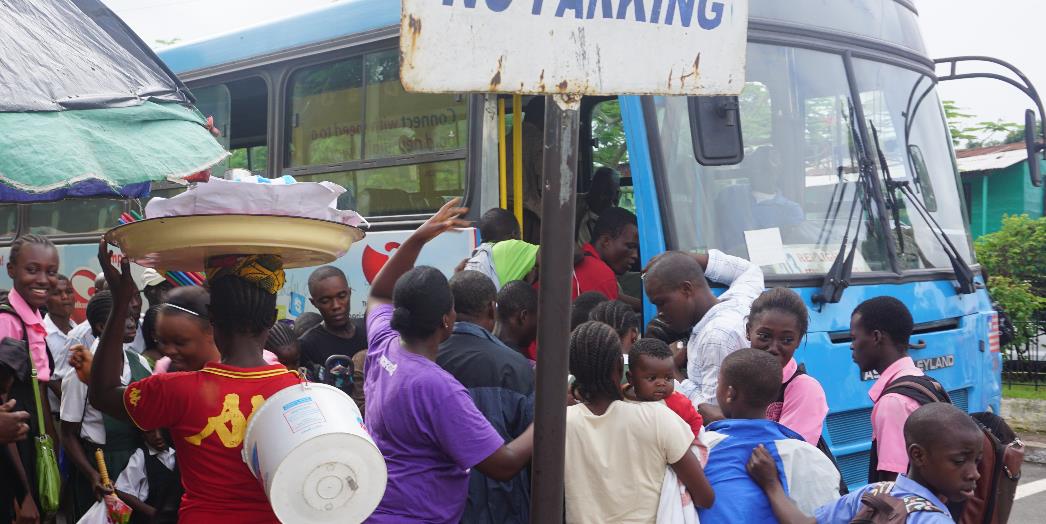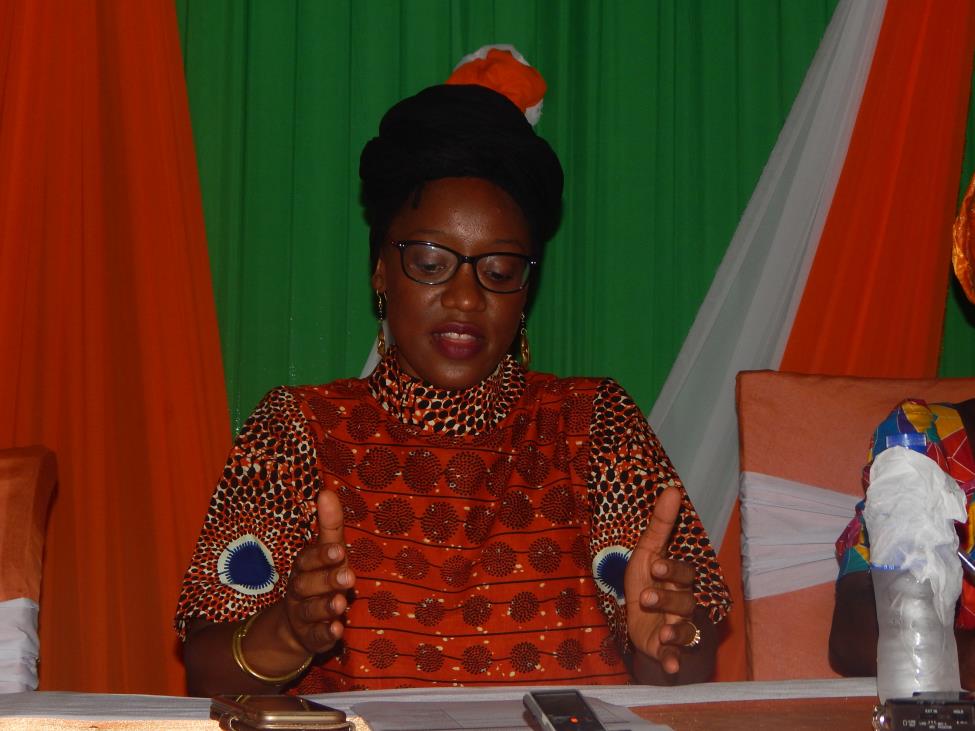MONROVIA, Montserrado – Finding a ride in Monrovia during rush hour is a hectic experience, with commuters often seen jostling with each other for a better position to catch the next available seat in a taxi or on a bus.
Such a disorganized system can leave women vulnerable to violence and sexual assault in a male-dominated public transport system.
Daintowon Domah Tay-Baywee, deputy secretary for administration of the Federation of Liberian Youth, said women are left disadvantaged in the current system because men often use their strength as an advantage to board vehicles.
“Many times, we are pushed aside from boarding vehicles by men because they are more physical than us,†she said.
Moreover, Tay-Baywee said she and other women are made even more vulnerable by the jam-packed rush-hour traffic, which drives her to wake up early in the morning to wait for vehicles while it is still dark outside.
She said, “Sometimes, we are forced to liaise with ‘zogos’ to fight for seats for us on cabs and buses,†referring to the car loaders who sometimes double as petty criminals.
Princess Forkpah-Harris, a student of the University of Liberia, also wants transportation policies in the city to be improved.
She said if this is not done, more women would continue to be victims of sexual and physical abuses and harassments.
“Sometimes, we are compelled to overlap or sit on the lap of a male friend to get to school in time. This alone is a risk of most men taking advantage of women,†she added.
The women’s complaints coincided with the launch of ActionAid’s “Freedom to Move†report, as part of this year’s global celebration of the 16 Days of Activism.
The report is a research of women’s experiences with urban public transport systems in three cities – Dhaka in Bangladesh, Abuja in Nigeria, and Sao Paulo in Brazil – but it also offers key lessons for Monrovia.
It says safe public transportation is a necessary prerequisite for women and girls to be able to exercise their right to freedom of movement and their right to enjoy and use their cities’ services without the threat of sexual violence or harassment.
“Currently, the governments of Bangladesh, Nigeria, and Brazil are failing to provide safe, secure and reliable services for women and girls,†the research revealed.
As public transportation is the lifeblood of cities and the most efficient way to move large numbers of people, the report said over half of many cities’ populations are marginalized, especially because the needs of girls and women are not addressed, leaving them vulnerable to violence and unable to fully exercise their rights.
“For women and girls worldwide, the freedom to move safely around cities is greatly restricted, whether by gender-blind planning and design of transport infrastructure or by social and cultural norms that tolerate violence towards women,†the report said. “Poor street lighting, a lack of buses and stops, all-male transport staff, lack of public toilets, and inadequate policing has created an environment where sexual violence against women in the city can thrive.â€
In Liberia, the report was launched by the minister of gender, children and social protection, Julia Duncan Cassell, along with ActionAid Liberia interim country director, Lakshmi Moore, who said the launch of the report marks the beginning of series of dialogues among citizens, stakeholders, and policymakers on how the recommendations can be used in the Liberian context.
“We will also talk about how we can take this further on with the representatives in the different government places, like the Liberia Revenue Authority, National Transit Authority, and Ministry of Transport so that they also can talk about it,†Moore said. “Also, how can we get NTA to ensure that some of the issues that would be brought out can be addressed – how can we get the University of Liberia to also think about public transport and how women are affected when trying to access public transport?â€
ActionAid is meanwhile recommending that governments invest in public transport services to safeguard the rights of women and girls. The group wants governments to ensure that public transport is publicly delivered and publicly funded through progressive taxation and progressive spending.
At the same time, the organization wants the sector to be open to both men and women under an accountable and effective management system.
Cassell, the gender minister, praised the efforts of ActionAid and stressed the need for equal and safe access to public services and facilities by all.
She said while the government is working to ensure free and equal access to public facilities to all, including the disabled, having public transportation safe for everyone must be seriously considered.
“Most times you’ll see girls coming from school and fighting to get car to get home. Yes, it is not safe,†she said.
She hoped that the report would be circulated and bought into by government stakeholders that would see the need to improve public transportation.
Featured photo by Jefferson Krua. Correction: A previous version of this article incorrectly listed Tay-Baywee’s position as “deputy for administration.”



